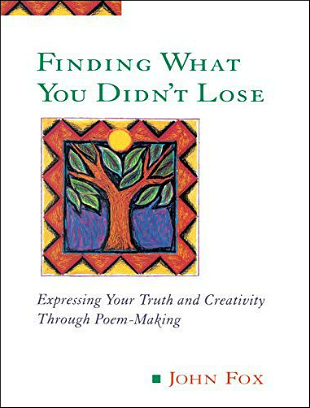"I offer you two general suggestions for beginning the writing process and for keeping the flow of creativity as active as possible. The first suggestion is: Receptivity.
"The greatest writers of all time had to deal with exactly the same thing as you when it came to putting a word down on an empty page. Each time they sat down, they also had to trust that the words would come to them — once they became receptive:"
I never know when I sit down just what I am going to write. I make no plan. It just comes and I don't know where it comes from.
— D. H. Lawrence
"You can consciously prepare yourself to practice trust and receptivity. Sink into your center with meditative breathing. Practice stillness and listening. Let yourself open in this way to each moment. Let your awareness gradually become keen and still. As you become still, concentrate on what is happening right now, what is coming up in the moment. Listen to what the Quakers call 'the still small voice.' Pay attention to what Zen Master Suzuki Roshi calls your 'big mind'; observe and listen to what is happening. Open to your feeling; allow yourself to free-associate."
That everything is included within your mind is the essence of mind. To experience this is to have religious feeling.
— Shunryu Suzuki Roshi
"Here is how one poet describes the methods she uses to enter into her writing. Her simple words are comparable to the practice of meditation that will allow you to tap into your 'big mind':"
Concentration; observation; losing myself.
— Sandra McPherson
"How can you set this process of receptivity into motion? As you begin writing, you might want to use what is called an 'entrance meditation.' Entrance meditations act as affirmations or prayers to support the flow of your words. An entrance meditation is used to center yourself. It will help to focus your intention and allows you to concentrate on your writing process. Concentration and observation can be compared to threading a needle. Putting the thread through the eye of a needle is like losing yourself completely in whatever it is you wish to write about."
Talking to paper is talking to the divine. It is talking to an ear that will understand even the most difficult things. Paper is infinitely patient.
— Burghild Nina Holzer
"An entrance meditation can be a simple and silent kind of prayer. Not a formal prayer, but a gesture to connect with your Muse. You will discover a way of doing this that is personal and especially right for you.
"Over twenty years ago when I asked Ram Dass, my meditation teacher at that time, how to write poetry from a deeper place within myself, he said, 'Take five deep breaths into your heart chakra and ask the ethers for poetry.' His advice may sound a bit Eastern and esoteric for some, but I think his essential advice had to do with practicing receptivity."
"You can use the following as further guidelines for practicing receptivity:
• "Watch to see if an image flickers through your mind, because that is a good way to start a poem. If an image comes, ideas and feelings will be attached to that image. This 'catching' of flying images takes practice. So practice!
• "Try to keep an image flow going. When we begin to write, the original impulse often gets lost and so do we. After you've got the initial feeling and image, sit very quietly and ask yourself: What do I really mean to say? What would I say if no one in the whole world but me were going to see this? What did I want to write about anyway?
• "Don't worry about big ideas or where you are going. If you knew where you were going, you wouldn't need to write a poem to find your way.
• "Keep your pen (or word processor) moving, even if what you write sounds silly. Be open to whatever flows from your thoughts, feelings, imagination.
• "Don't erase, don't worry about spelling or grammar.
• "And finally, don't feel you will always know at the time you write something how it is meant to turn out. An unused fragment from five months ago may suddenly call for your attention and be just the right piece to weave into a current piece of writing. Receptivity includes remaining open to your unused writing. For that reason, don't throw anything away. Keep your writing in a folder. Nothing is wasted."
